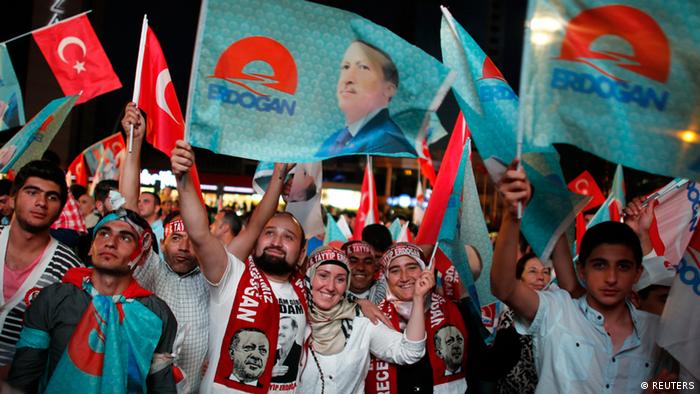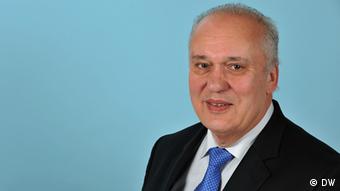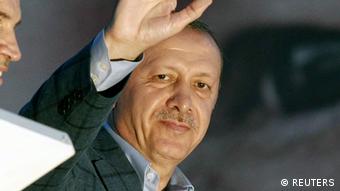Opinion: Bitter realization in Turkey
The Turkish presidential election is decided: Prime Minister Recep Tayyip Erdogan will become head of state. It's a bitter win, and not just for opponents of further Islamization, says DW's Baha Güngör.
The will of the Turkish citizens, who for the first time were able to select their head of state on Sunday (10.08.2014), was clear: With a solid lead, Prime Minister Recep Tayyip Erdogan surpassed the 50-percent threshold in the first round and was elected president.
The outcome was fully democratic and therefore irrefutable. That's one side of the coin. But on the other side is the fear that Turkey could now head further down the path of transformation into an Islamic republic - with increasing religious requirements for citizens in everyday life.
With Erdogan's victory, the secular reforms of Turkey's founder Mustafa Kemal Ataturk fall further to pieces. Though they were loath to admit it in recent years, the arrogance of the country's Kemalist elite in the face of the many problems of the Turkish people in daily life has led to the current political status quo.
As a result, Erdogan's Islamic-conservative Justice and Development Party (AKP) was able to steadily build on its landslide 34 percent win in 2002 to almost 50 percent in parliamentary elections three years ago. In the end, the AKP won every election and has now crowned its rise to overwhelming political power with the election of its leader and head of government to the position of president.
Erdogan knows what ordinary citizens want
The AKP emerged from the ruins of four religious parties, outlawed between the late 1960s and the second half of the 1990s by the military and deemed by the Constitutional Court to be a "center for fundamentalist activities." Based on the experience of these early parties, Erdogan knows exactly what the average citizen needs and wants. This insight has now been recognized by the voters. But above all, Erdogan was chosen because he gave the Turkish people a whole new sense of self-esteem based on religious values.
The fact that freedom of expression and the press and democratic values have been severely restricted over the last decade, and that Turkey ranks poorly when compared to international standards, does not interest Erdogan in the slightest. His supporters have also ignored the many allegations of corruption and abuse leveled at the prime minister, his family and his inner circle - they're the price to pay for relative prosperity.
A 'new' Turkey
Erdogan will be president for the next five years. But the 60-year-old will most likely remain in charge for a second term, that can already be assumed. As a result, when the Turkish Republic marks its 100th anniversary in 2023, he will go down in history as the man who will have reversed nearly all of Ataturk's reforms. A new regime based on a presidential system with a marginalized parliament is very likely, probably the reason why Erdogan is always speaking of the "old" and "new" Turkey.
His main rival, Ekmeleddin Ihsanoglu, achieved just under 39 percent of the votes cast - even running with the support of 14 politicial parties. The 41-year-old Kurdish politician Selahattin Demirtas, meanwhile, enjoyed a moderate success with just over 9 percent of the vote, a possible sign that his pro-Kurdish HDP could cross the 10-percent threshold required for representation for the first time in the next parliamentary elections in 2015.
Europe's waning influence
Erdogan may be respected by some in Turkey, but he still definitely needs to work on his reputation abroad. Surrounded by ongoing crises in places like Iraq and Syria, and the conflicts in Gaza/Israel and Ukraine/Russia, not to mention the recently renewed fighting between Azerbaijan and Armenia over the Nagorno-Karabakh region, Erdogan must overcome fears that he will only add fuel to these fires. It's something he has often done in the past.
The EU - and especially Germany - will have to cope with an increasingly uncomfortable relationship with Erdogan. The EU-Turkey adventure is inexorably drawing to a close. This isn't the end of the world, but the EU's influence on developments in Turkey is likely to decrease. Whether that's good for European interests in the region remains to be seen.DW DE




No comments:
Post a Comment